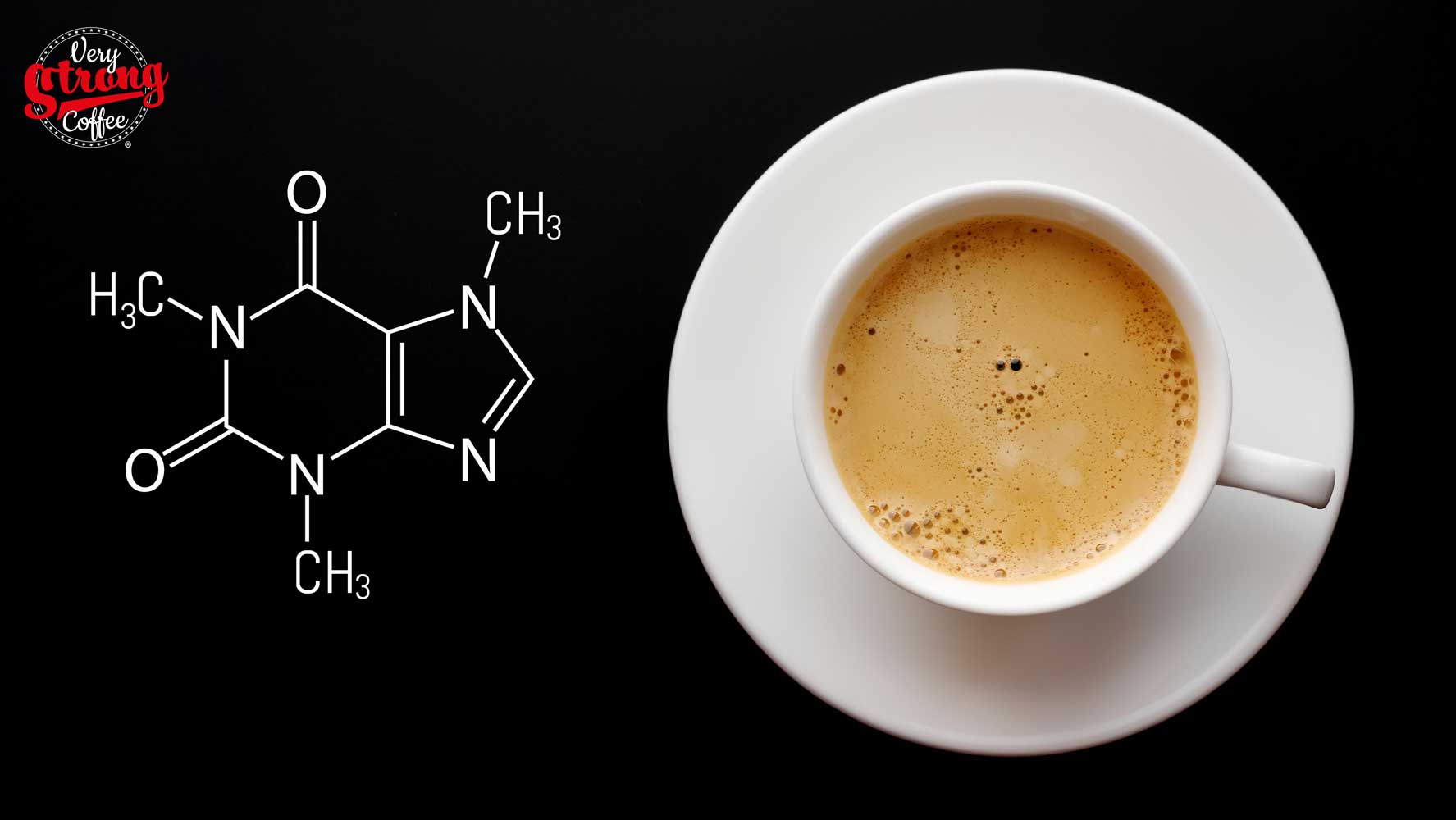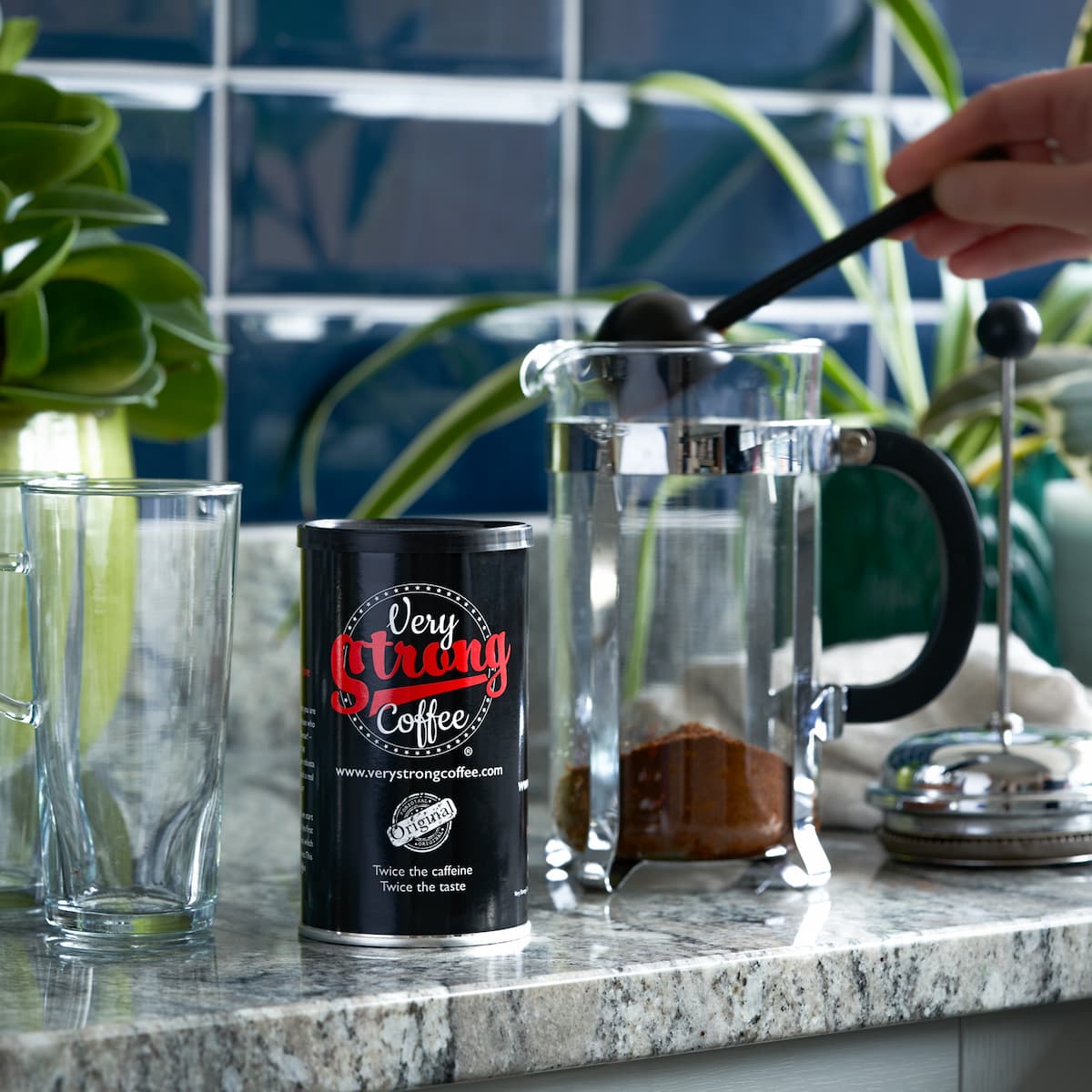How much caffeine is in coffee? A Complete Guide.
August 11, 2021

Introduction
Coffee is a drink so popular in our culture that it can be hard to imagine life without it.
But are you really getting the most out of your coffee?
Do you know all the benefits and risks associated with caffeine consumption?
This blog post will answer these questions and more, giving you an opportunity to make an informed decision about what's best for your body.
What affects caffeine content in coffee?
Several variables affect the amount of caffeine in any particular coffee, these are:
- The type of beans being used, for instance, robusta beans are the most highly caffeinated in the world
- The roasting method used i.e. lighter roasts have a higher moisture content, which can dilute the caffeine to weight ratio, so depending on the way you measure the caffeine content, light vs dark roasts can appear more different than they really are
- The way the coffee is made also changes things, with a lot of variability across espresso, drip or cafetiere, and instant coffee.
- Serving size is also widely interpreted, with anywhere from 30-700ml being considered a serving

How much coffee is in a typical cup of coffee?
To help draw out some comparisons, this table shows the amount of caffeine per serving of brewed (drip or cafetiere), espresso, instant coffee as well as black tea, green tea and cola.
Caffeine content for coffee, tea, green tea and Cola
|
Beverage |
Serving size in ml |
Caffeine in mg |
|
Brewed coffee (drip, cafetiere) |
237 |
96 |
|
Espresso |
30 |
64 |
|
Instant |
237 |
62 |
|
Black Tea |
237 |
47 |
|
Green Tea |
237 |
28 |
|
Cola |
237 |
22 |
If you like your coffee strong, the best approach is to brew it. It’s also interesting to see that a single shot of espresso is very similar in caffeine content to a whole serving of instant coffee.
The numbers above are for generic coffee types with average caffeine content and so work as a general guide only. As mentioned above, the bean and the roast also play a significant role in determining overall caffeine content, not just the brewing method.
How much caffeine is too much?
This will vary depending on genes, how often you consume caffeine adn your tolerance for it.
However, for some groups it’s a lot clearer.
For example, health advice for pregnant women, women who are trying to become pregnant, or breastfeeding mothers all suggests that caffeine intake should be limited to less than 200mg per day.
And if you already know you have a low tolerance, or are on medications that have contra-indications when used alongside caffeine, then too much caffeine is probably very little indeed.
This isn’t a complete list, but if you are taking any of the following you should probably talk with your GP before upping your caffeine consumption:
- Ephedrine. This is a stimulant used in many decongestants and when mixed with caffeine (another stimulant) it may cause adverse effects on blood pressure.
- Theophylline. This is quite similar in effect to caffeine, having too much may therefore cause some to feel nauseated or have palpitations.
- Echinacea. May increase the concentration of caffeine in your blood.
You may also have had too much if you ever feel any of the following as a result of consuming caffeine:
- Headache
- Insomnia
- Nervousness
- Irritability
- Frequent urination
- Fast heartbeat
- Muscle tremors

Health benefits of caffeine and coffee
For most people, regular and moderate consumption of caffeine is not only not a problem, it’s enjoyable and beneficial for health.
Here are just a few of the many health benefits associated with caffeine:
1. Caffeine can boost energy levels and reaction times
It’s no mystery that caffeine can help people feel less tired and increase energy levels.
2. Caffeine can help improve brain function
This is because caffeine works in the brain to block adenosine - an inhibitory neurotransmitter.
This results in increased amounts of other neurotransmitters like norepinephrine and dopamine, which in turn lead to greater firing rates among neurons).
As a result, studies have shown improvements in brain function, including memory, mood, vigilance, energy levels, reaction times and general mental function
3. Caffeine can help to burn fat
Caffeine can boost metabolic rate and in doing so, studies have shown that caffeine has the ability to increase fat burning.
Several studies show that caffeine can increase fat burning and boost your metabolic rate.
4. Caffeine may also help to prevent Alzheimer’s Disease and Dementia
For those over 65, Alzheimer’s Disease and Dementia is a devastating condtion with no know cure. However, there are ways of helping to prevent it’s development, including healthy eating and regular exercise.
Several studies have also shown that coffee drinkers can lower their risk of Alzheimer’s disease by 65%.
5. Caffeine May Lower Your Risk of Parkinson’s
Parkinson’s disease is caused by a reduction in the brain of the neurons that generate dopamine. As with Alzheimer’s, there is no known cure, placing ever more importance on prevention instead.
Studies show a risk reduction for coffee drinkers in developing Parkinson’s, with the reduction ranging between 32–60%.
And it is the caffeine that’s beneficial here as those who drank decaf coffee did not see a lower risk for Parkinson’s.
6. Coffee is the greatest source of antioxidants in our diet
Coffee is packed full of antioxidants, in fact it has the highest concentration of them of all the regular elements of a standard Western diet.
The robusta bean in particular has the highest antioxidant concentration on the market, which is why so many people drink Very Strong Coffee for the health benefits of our particular bean of choice.
In fact, studies show that a great number of people get more antioxidants from coffee than from fruits and vegetables combined
Conclusion
The caffeine content of coffee can vary according to the type of coffee, the bean, the roast and the serving size, with brewed coffee being the strongest.
Vulnerable groups and those on medication should be mindful of their intake but for the majority of people, caffeine can actually confer many health benefits including helping to prevent serious diseases as well as increasing brain function.
Additionally, coffees such as Robusta beans are so jam-packed with antioxidants that many get more antioxidants from drinking coffee than from eating fruit or vegetables.
So there you have it - coffee is full of caffeine, which has many amazing benefits, not just giving us a kickstart to our day.
How much caffeine do you look for in your coffee and what benefits are you looking for?
Let us know in the comments.










